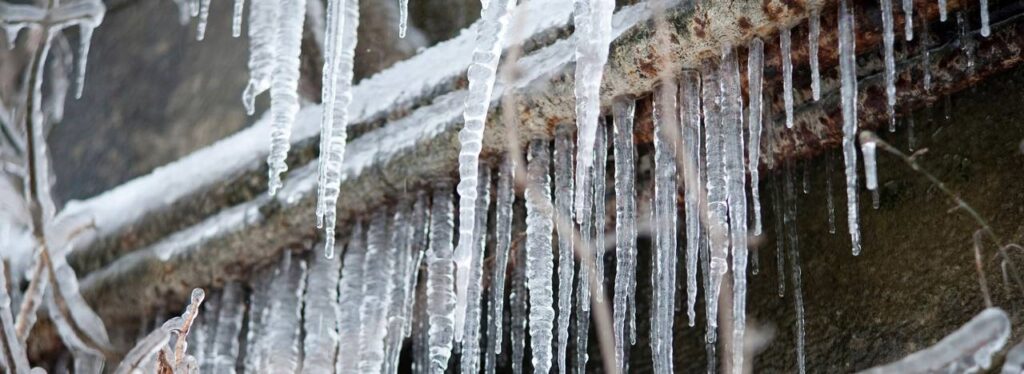Ways to Defend Your Pipes from Cold Weather: Professional Tips
Ways to Defend Your Pipes from Cold Weather: Professional Tips
Blog Article
What're your ideas regarding How To Avoid Freezing Pipes?

Winter can damage your pipes, especially by freezing pipelines. Here's exactly how to stop it from happening and what to do if it does.
Intro
As temperature levels drop, the danger of icy pipelines increases, potentially bring about pricey repairs and water damage. Comprehending just how to stop icy pipes is critical for home owners in chilly climates.
Comprehending Frozen Pipes
What causes pipelines to freeze?
Pipelines freeze when subjected to temperature levels below 32 ° F (0 ° C) for expanded periods. As water inside the pipes ices up, it expands, putting pressure on the pipeline wall surfaces and potentially triggering them to break.
Risks and damages
Frozen pipelines can bring about supply of water interruptions, residential or commercial property damages, and costly fixings. Ruptured pipelines can flooding homes and cause extensive structural damage.
Signs of Frozen Pipes
Identifying frozen pipelines early can stop them from breaking.
Just how to determine frozen pipes
Look for reduced water circulation from faucets, unusual smells or sounds from pipes, and visible frost on revealed pipelines.
Prevention Tips
Protecting prone pipelines
Cover pipes in insulation sleeves or use warm tape to secure them from freezing temperature levels. Concentrate on pipes in unheated or exterior areas of the home.
Heating techniques
Keep interior rooms sufficiently heated, specifically locations with plumbing. Open up closet doors to allow cozy air to distribute around pipes under sinks.
Safeguarding Outdoor Pipes
Garden hoses and exterior faucets
Separate and drain pipes garden tubes before winter months. Set up frost-proof spigots or cover exterior faucets with shielded caps.
What to Do If Your Pipelines Freeze
Immediate actions to take
If you think frozen pipes, maintain taps available to alleviate pressure as the ice melts. Utilize a hairdryer or towels soaked in hot water to thaw pipes slowly.
Long-Term Solutions
Structural adjustments
Consider rerouting pipelines far from outside walls or unheated areas. Include added insulation to attic rooms, basements, and crawl spaces.
Upgrading insulation
Invest in high-quality insulation for pipes, attic rooms, and walls. Appropriate insulation assists maintain regular temperature levels and reduces the danger of frozen pipelines.
Verdict
Preventing frozen pipes requires proactive steps and quick feedbacks. By recognizing the reasons, indicators, and safety nets, homeowners can shield their pipes throughout cold weather.
Helpful Tips to Prevent Frozen Pipes this Winter
UNDERSTANDING THE BASICS: WHY PIPES FREEZE AND WHY IT’S A PROBLEM
Water freezing inside pipes is common during the winter months, but understanding why pipes freeze, and the potential problems it can cause is crucial in preventing such incidents. This section will delve into the basics of why pipes freeze and the associated problems that may arise.
THE SCIENCE BEHIND FROZEN PIPES
When water reaches freezing temperatures, it undergoes a physical transformation and solidifies into ice. This expansion of water as it freezes is the primary reason pipes can burst. As the water inside the pipe freezes, it expands, creating immense pressure on the walls. If the pressure becomes too great, the pipe can crack or rupture, leading to leaks and water damage.
FACTORS THAT CONTRIBUTE TO PIPE FREEZING
Low Temperatures: Extremely cold weather, especially below freezing, increases the risk of pipes freezing. Uninsulated or Poorly Insulated Pipes: Pipes located in unheated areas, such as basements, crawl spaces, or attics, are more prone to freezing. Insufficient insulation or lack of insulation altogether exacerbates the problem. Exterior Wall Exposure: Pipes running along exterior walls are susceptible to freezing as they encounter colder temperatures outside. Lack of Heating or Temperature Regulation: Inadequate heating or inconsistent temperature control in your home can contribute to frozen pipes. PROBLEMS CAUSED BY FROZEN PIPES
- Pipe Bursting: As mentioned earlier, the expansion of water as it freezes can cause pipes to burst, resulting in significant water damage.
- Water Damage: When pipes burst, it can lead to flooding and water damage to your property, including walls, ceilings, flooring, and personal belongings.
- Structural Damage: Prolonged exposure to water from burst pipes can compromise the structural integrity of your home, leading to costly repairs.
- Mold and Mildew Growth: Excess moisture from water damage can create a favorable environment for mold and mildew growth, posing health risks to occupants.
- Disrupted Water Supply: Frozen pipes can also result in a complete or partial loss of water supply until the issue is resolved.
WHY CERTAIN PIPES ARE MORE PRONE TO FREEZING
- Location: Pipes located in unheated or poorly insulated areas, such as basements, crawl spaces, attics, or exterior walls, are at higher risk of freezing.
- Exterior Pipes: Outdoor pipes, such as those used for irrigation or exposed plumbing, are particularly vulnerable to freezing as they are directly exposed to the elements.
- Supply Lines: Pipes that carry water from the main water supply into your home, including the main water line, are critical to protect as freezing in these lines can affect your entire plumbing system.
- Underground Pipes: Pipes buried underground, such as those connected to sprinkler systems or outdoor faucets, can be susceptible to freezing if not properly insulated.
https://busybusy.com/blog/helpful-tips-to-prevent-frozen-pipes-this-winter/

I was introduced to that report about How to prepare your home plumbing for winter weather from a friend on our other web address. Enjoyed reading our piece? Please quickly share it. Help somebody else check it out. Thanks a lot for being here. Please stop by our blog back soon.
Additional Resources Report this page